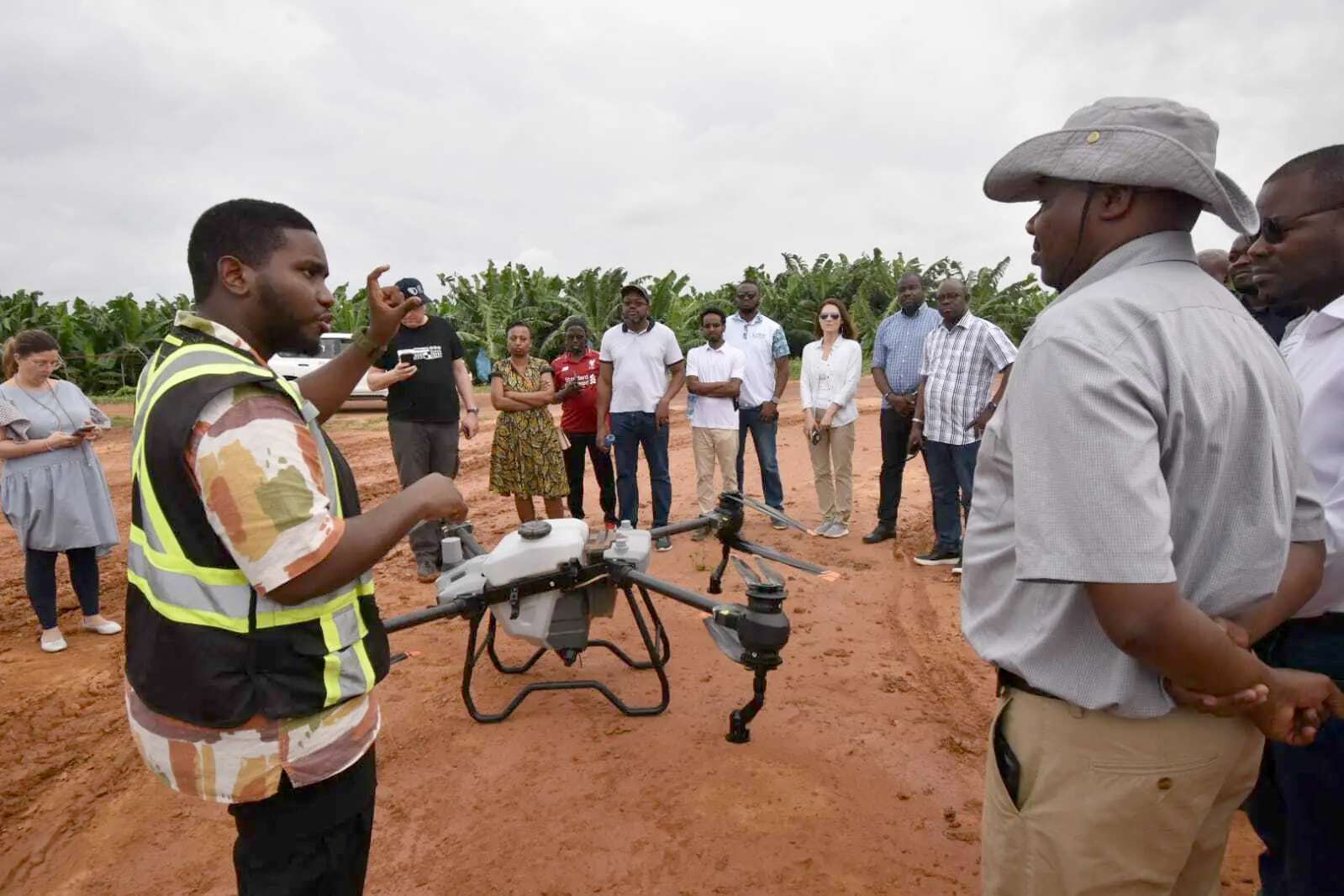
Drones can be a force for good. There are a multitude of drone use cases with the potential for positive social impact, whether monitoring reforestation efforts, spraying crops, surveying damage following a climate event, or delivering lifesaving medicines to remote clinics. Now, many countries are grappling with how to keep up with advances in technology and how they might realise the full benefits drones offer, including via enterprise and job creation, while also maintaining safety and security standards.
Africa is leading the way in drone use and Civil Aviation Authorities are on the front line, navigating demand (both from humanitarian and commercial actors, and hobbyists) and potential safety and security risks. There is no regulatory blueprint to follow yet for Civil Aviation Authorities in Africa, who are under pressure to enable increasing numbers of drone flights and to safely manage air traffic. This includes managing the risk of bad actors who may use drone for illegal activities. The challenge today is for African Civil Aviation Authorities to continue pioneering in this space. This will mean developing, testing, and refining regulations that allow the benefits of drones to be reaped locally, while maintaining a high degree of safety and security.
The "What's ethics got to do with it?" discussion paper, supported by DT Global, shares some guiding principles for decision makers on how safety, security and ethical questions related to the sustainable growth and scaling of drone operations in healthcare logistics in Africa might be navigated. The momentum generated through stakeholder interviews to inform the paper, led to the formation of the Peer Action Group for African Civil Aviation Authorities committed to exploring solutions to increase safety and security through a holistic and locally adapted approach.
Since March 2023, DT Global, through the Frontier Technologies Programme (delivered by DT Global, Results for Development, and Brink) has been providing coaching and facilitating peer learning for this Peer Action Group of representatives from Civil Aviation Authorities who are working on drone issues in Benin, Cote d’Ivoire, Ethiopia, Ghana, Kenya, Malawi, Mauritania, Rwanda, and Senegal. With technical assistance from Drones Doing Good (DDG), the group is proactively testing practical solutions, sharing findings via peer learning and exchange, adopting, and adapting best practices.
Participants have been exploring new solutions and regulatory approaches for online registration processes, unmanned aircraft system traffic management (UTMs), tracking, separation of air traffic, and drone corridors. The support provided includes highly interactive sessions to dig into the problems regulators are trying to solve and the context and unique challenges each country faces in order to develop action plans, regular online coaching calls to support progress, and on-demand technical deep dives on common themes arising. Feedback from participants indicates that they particularly value the opportunity to learn from one another’s experiences and surface common questions and challenges.
Thanks to support from GIZ, Smart Africa, and FCDO the group has been able to meet in person three times; in Germany in March to launch the group, in Kigali in August to review progress and to deep dive on technical questions, and in Abidjan in February to share progress, continue to learn from each other through peer exchange, and to discuss opportunities for future phases of the project.
Discussions between participants of the group have highlighted similarities and differences in approaches. Participants also recognize the potential benefits, particularly for operators, of consistency between countries.
There is appetite amongst the group for future discussions on common standards and cross-border drone activities. The group is also interested in regional coordination on topics including training standards for pilots, unmanned ariel vehicle (UAV) licensing processes, charges passed onto operators, and standardised commercial drone categories, as well as more broadly considering a standardised structure for drone regulations, to make them easier to navigate for operators.
Learning from countries’ experiences will be shared as blueprints which describe each solution and in which context it might be most useful to support regulatory goals, and as a synthesis of observations about the process, the solutions and drone regulations. To learn more about this initiative, listen to the Frontier Tech Hub podcast "The Drone Frontier" and check out the Drones Doing Good website.
This work is implemented through the UK Aid-funded Frontier Tech Hub (DT Global, Results for Development and Brink) and delivered in partnership with Drones Doing Good.